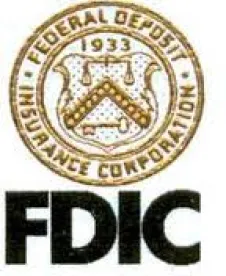Last week, Representative Blaine Luetkemeyer, Chair of the House Financial Services Committee’s Subcommittee on Financial Institutions and Consumer Credit, and Representative Scott Tipton sent a letter to Jelena McWilliams, Chair of the FDIC, that identified concerns with the FDIC’s interpretations and regulations surrounding brokered deposits and requested the FDIC to revisit its June 2016 Frequently Asked Questions on Identifying, Accepting and Reporting Brokered Deposits “in light of the rapid technological changes in the banking and payments industry.”
Congressmen Luetkemeyer and Tipton assert that the FAQ is inconsistent with the definition of “deposit broker” under 12 C.F.R. § 337.6(a)(2). The regulation defines a brokered deposit as “any deposit that is obtained, directly or indirectly, from or through the mediation or assistance of a deposit broker.” The term “deposit broker” is defined under 12 USC §1831f to include “(A) any person engaged in the business of placing deposits, or facilitating the placement of deposits, of third parties with insured depository institutions or the business of placing deposits with insured depository institutions for the purpose of selling interests in those deposits to third parties; and (B) an agent or trustee who establishes a deposit account to facilitate a business arrangement with an insured depository institution to use the proceeds of the account to fund a prearranged loan.”
The Congressmen believe that the broad classifications in the FAQ of what deposits are brokered and when an entity is a deposit broker: (1) exposes institutions to restrictive and costly supervisory limits and deposit insurance assessments; (2) has reduced the number of financial institutions that can afford to participate in certain markets and, thereby, limited consumer access to financial products; (3) interfered with innovation; and (4) diminished the access of financial institutions to “stable sources of deposits,” thereby “limiting the funding banks can make available for lending to small businesses and consumers.”
By way of example, the 2016 FAQ states that deposits generated by “advertising or referrals by third parties (such as nonprofit affinity groups as well as commercial enterprises), in exchange for volume-based fees” would be deemed brokered deposits even if the customers themselves would subsequently become core customers of the institution. The FAQ further states that “[i]f a company merely designs deposit products or deposit accounts for one or more banks, without placing deposits or facilitating the placement of deposits at these banks, the company will not be classified as a deposit broker,” but if a company also markets a bank’s deposit products in exchange for volume-based fees, then it would be a deposit broker.
When considering the costs of the design of new deposit products and the development of new technological applications to serve financial institution customers, a determination that the use of volume-based fees will cause deposits to be deemed brokered deposits does appear to stifle innovation and limit the ability of financial institutions with fewer resources to develop technological advances that would benefit consumers.
The FDIC has not yet responded.



 />i
/>i
